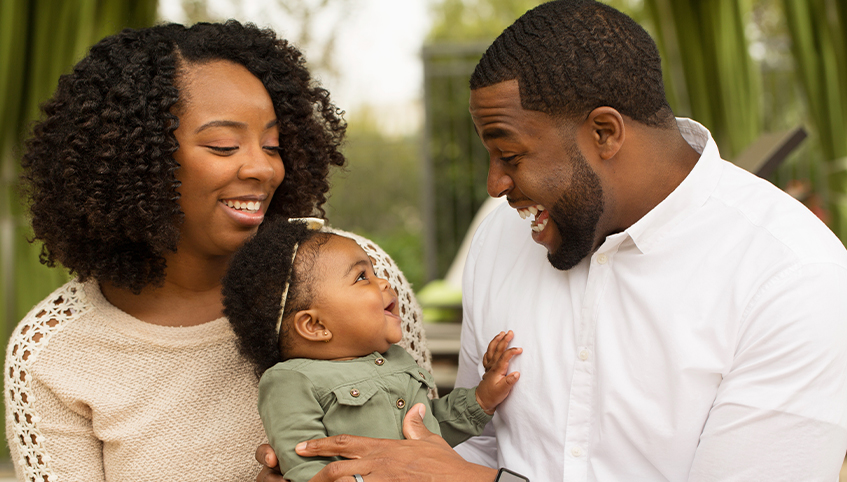June 21, 2023
The maternal mortality rate is getting worse in the US, and Black women are dying at more than twice the rate of white or Hispanic women.
“The disparity exists mainly because of racism,” said Sharla Smith, PhD, MPH, who is the founder of the Kansas Birth Equity Network for the University of Kansas Medical Center’s Department of Obstetrics and Gynecology.
“There's a problem,” said health system obstetrician-gynecologist Carrie Wieneke, MD. “We aren't afraid to say that out loud, and we're working through ways to try to address it.”
How frequently Black mothers are dying and why
According to the CDC, the maternal mortality rate for Black women in 2021 was 69.9 deaths per 100,000 live births. By comparison, for every 100,000 live births white women had 26.6 deaths and Hispanic women had 28 deaths.
“Being a Black woman in America and trying to find good healthcare, or a good place to have your child, is really scary,” said Hannah Byrd during a recent Medical News Network interview. She is a health system patient who gave birth in December.
Angela Martin, MD, a maternal-fetal specialist with the health system, said that common causes of death for women during, or soon after, pregnancy include cardiac events or cardiovascular disease, infection, bleeding, stroke and hypertension – like preeclampsia.
While preeclampsia affects 2-8% of pregnant people, it still is more prevalent in the Black community. The “why” gets back to racism.
Dr. Smith cited the concept of weathering to explain how racism causes stress and leads to physical illness.
“What weathering is, in an analogy, is a Jenga game,” said Dr. Smith. “If you play Jenga, there's little pieces you put together, right? So, for Black people, every day there's little pieces of racism that happen in your life – whether you're stopped by police, or you go to the grocery store and someone follows you, or you're in your community and someone mistreats you. And if you pull one piece just like in a Jenga game, then that person falls apart. That’s what happens with the Black body when we experience racism over time. We see that Black women, regardless of their education, regardless of their incomes, regardless of where they live, regardless of the fact that they seek prenatal care in the first trimester, they still have worse outcomes than white, Asian and Hispanic women who are poor, who never finish high school, who seek prenatal care either late or not at all.”
This stress on the body directly contributes to cardiovascular disease during pregnancy and postpartum depression after birth, among other things.
The disparity exists mainly because of racism. – Sharla Smith, PhD, MPH
Founder, Kansas Birth Equity Network
What is The University of Kansas Health System doing about Black maternal mortality?
“I think the biggest thing is that we are open to talk about it, and we realize that there's a problem,” said Dr. Wieneke.
She went on to say the OB-GYN team works to address Black maternal mortality in a variety of ways, including proactively identifying patients who may be more at risk, analyzing cases that are related to racism, having an OB quality care committee, providing training on implicit bias and anti-racism and creating the BEST residency program.
BEST stands for Birth Equity Clinical Scholar Training. Dr. Smith is the founder and director. She said the BEST students get time to learn about research, policy and other factors that affect these maternal outcomes. Residents can spend 1-2 years in the program. Dr. Wieneke said it is the first of its kind in the nation.
“They’re not just learning about research and the data and the questions,” said Dr. Smith. “The students were so excited about policy, they want more. They want to learn more about policy and how policy works and how it impacts health. They get to spend 40 hours working with an organization that works on Black maternal and child health in our community to build that collaboration, to build that partnership.”
Dr. Smith stressed that there is only so much physicians can do. She said patients also need support outside of the healthcare system.
“It's about where you work, play and live,” she said. So, in the place that you live, is there support for you and your family? (It’s about) what schools your children attend, what grocery store you can go to, whether or not there's the ability to walk in your community. Where you live determines a lot about your health.”

Patient support can look like community education and improvement. Dr. Smith mentioned the Kansas Sisters and Brothers for Healthy Infants as one organization focused on doing that. The Kansas Birth Equity Network has also created a way for community organizations, researchers and others to collaborate on improving this issue.
Finally, Dr. Smith mentioned the importance of expanding Medicaid coverage. Right now, where someone works has huge implications on their health. For example: Does their job provide health insurance? Does it support leave? Can they breastfeed at work?
“We talk about breastfeeding and how that is a contributing factor to having a healthy infant and a mother-child bond,” Smith said. “But whether or not you can do that is determined by your socioeconomic status.”
If a mother’s employment doesn’t provide those factors for overall health, Medicaid expansion could fill the gap.
“Expanding Medicaid here in Kansas would be really important to reduce maternal morbidity,” said Dr. Martin.
Birth equity
Overall, the obstetrics and gynecology team at The University of Kansas Health System is committed to birth equity for people of all races, ethnicities, genders, identities and socioeconomic statuses. They do that by carefully listening to patients, providing intentional care, fostering a safe and respectful environment, and building trust.
We offer a variety of appointment types. Learn more or call 913-588-1227 to schedule now.





